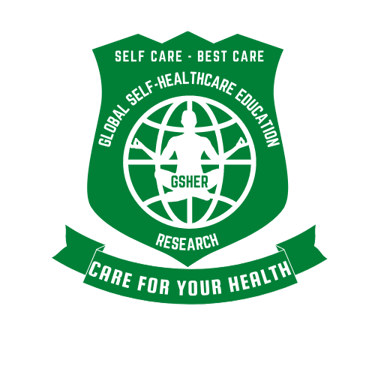Surgical self-healthcare... a new way to think about care after and before surgery
Read it, spread it, acknowledge it
HEALTH



Surgery is a major medical procedure that necessitates extensive preparation and care both before and after the procedure. While doctors and medical professionals are essential to the success of the surgery, patients can also play an active role in their healthcare by adopting a new approach to surgical self-healthcare.
What is surgical Self Healthcare?
Surgical self-healthcare refers to the measures that patients can take to prepare for and recover from surgery. It involves proactive steps that patients can take to improve their overall health and well-being before and after surgery. This includes adopting healthy lifestyle habits, following specific instructions from the medical team, and being aware of potential risks and complications.
Why is Surgical Self-Healthcare Important?
Adopting a proactive approach to surgical Self-healthcare can help patients to:
Reduce the risk of complications during and after surgery.
Improve the success of the surgery
Promote a faster and more comfortable recovery
Reduce the risk of future health problems.
Increase confidence and control over the surgery process.
How to Practice Surgical Self Healthcare?
Before Surgery:
Get in Shape:
The better your physical condition, the easier it will be for your body to cope with the stress of surgery. Regular exercise, a healthy diet, and adequate sleep can help strengthen your immune system, reduce stress levels, and improve overall health.
Follow Medical Instructions:
Your medical team will provide you with specific instructions on how to prepare for surgery. These may include dietary restrictions, fasting instructions, and pre-surgery medications. It is important to follow these instructions carefully to reduce the risk of complications.
Quit Smoking:
Smoking can increase the risk of complications during and after surgery. If you smoke, quitting several weeks before surgery can help reduce the risk of complications.
Prepare for Recovery:
Before surgery, make sure that you have everything you need for a comfortable recovery. This may include comfortable clothing, pillows, and blankets, as well as any prescribed medications and medical supplies.
Calm your mind.
Prepare your mind for surgery by meditating for 30 minutes every day and visualizing the successful outcome of the surgery . You have to think as if you have already recovered from the illness.
Cultivate faith:
Have complete and unwavering trust in yourself, in your physician, and in God.
Be grateful:
Thank everyone who helped you from pre-operative to post-operative to full recovery from your diseased condition.
After Surgery:
Follow Post-Surgery Instructions:
Your medical team will provide you with specific instructions on how to care for yourself after surgery. This may include instructions on how to care for your incision, when to take medication, and what activities to avoid. It is important to follow these instructions carefully to promote a successful recovery.
Practice Healthy Habits:
After surgery, it is important to continue practising healthy habits such as eating a healthy diet, getting enough rest, and staying hydrated. This can help promote healing and reduce the risk of complications.
Manage Pain:
Pain is a common side effect of surgery, and it's mostly subjective. Your active participation and mindset will prevent you from taking unnecessary painkillers. Your medical team will provide you with medication to manage pain, but it is important to use these medications as directed and to avoid overusing them.
Stay Connected:
Recovery can be a challenging time, both physically and emotionally. It is important to stay connected with family and friends and to reach out to your medical team if you have any concerns or questions.
5. Mindset Intervention:
During the post-operative period, adopt a growth mindset to heal yourself faster. One needs to focus on healing rather than thinking about complications.
Surgical self healthcare is a proactive approach to preparing for and recovering from surgery. By taking an active role in one's healthcare, anyone can improve the success of their surgery, reduce the risk of complications, and promote a faster and more comfortable recovery. If any questions or concerns about surgical self-healthcare, speak with our team for guidance and advice and contact@Gsher.
Dr Biswajit Mohapatra
Surgeon, Healthfluencer, Health Educator, Author. and Health Leader.
9437042490
